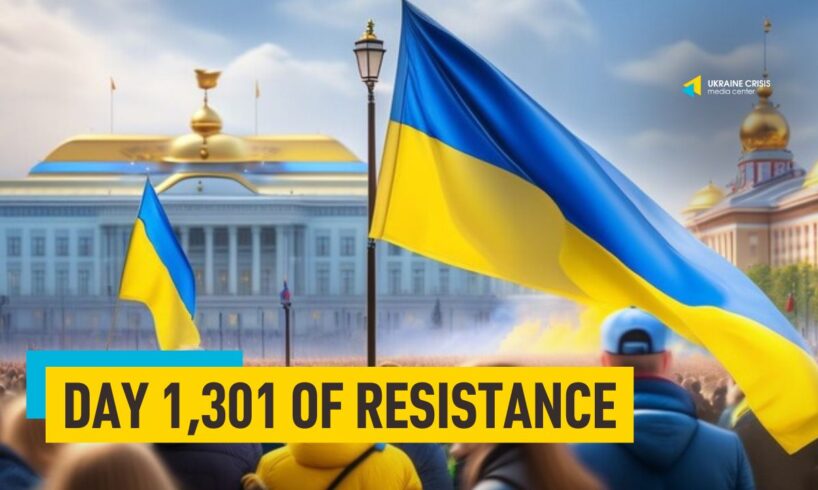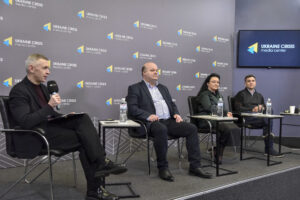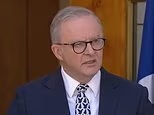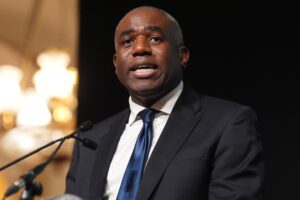
A Russian artillery attack kills one and injures 20 others in Zaporizhzhia. Russia is running an extensive network to re-educate Ukrainian children, Yale’s research finds. Seventy-five per cent of Ukrainians reject Russia’s terms for a peace deal, a poll finds.
Russian artillery attack kills one, injures 20 others in Zaporizhzhia
A major Russian attack on Zaporizhzhia early on Tuesday killed a 41-year-old man and injured at least 20 others, including four children, head of the regional military administration, Ivan Fedorov said. Two girls ages four and 17 were being treated in hospital.
According to preliminary reports, Russian forces carried out 10 strikes from Tornado-S multiple launch rocket systems, damaging 10 apartment buildings, 12 private homes and triggering fires, he added.
Russia running extensive network to re-educate Ukrainian children, Yale’s research finds
Russia is running an extensive network of at least 210 facilities to re-educate, Russify and militarize Ukrainian children, according to a new investigation by the Yale School of Public Health’s Humanitarian Research Lab (HRL) published Tuesday. The facilities, inside Russia and occupied Ukraine, include “cadet schools, a military base, medical facilities, a religious site, secondary schools and universities, a hotel, family support centers and orphanages, and most frequently, camps and sanatoriums.” Of these, 156 locations are newly identified in this study.
Since the start of the full-scale invasion in 2022, Ukrainian children have been taken to the sites and subjected to programs that include patriotic indoctrination, combat drills, paratrooper training and even classes on how to assemble drones for the Russian armed forces.
“This study provides previously unavailable insights into the scope, scale, and substance of these re-education and militarization programs operated directly, in many cases, by the Government of Russia,” the report reads.
The researchers used open-source intelligence, news reports and Russian government documents, as well as satellite imagery. Nearly a quarter of the sites show signs of expansion, suggesting Russia is preparing to accommodate more children, and at least two more camps are under construction. “The geospatial distribution of these locations, a network of facilities which reaches from the Black Sea across Siberia to the eastern coast of the Pacific Ocean, stretches across more than 3,500 miles and 59 regions of temporarily occupied Ukraine and the Russian Federation,” the Humanitarian Research Lab said.
The actual number of Russia’s re-education facilities is believed to far exceed 210 and also includes sites in Belarus, Kateryna Rashevska, legal expert at the Regional Center for Human Rights told Ukrainian news outlet The New Voice of Ukraine (NV).
“Since December 28, 2024, Russia has standardized the programs offered by re-education camps. [Children] not necessarily run around with rifles and dig trenches, but each such camp has a Russian flag ceremony and [they are made to] sing the Russian anthem,” Rashevska said.
Russia began to re-educate and militarize Ukrainian children long before the full-scale invasion, she continued. “We can show the cases when, unfortunately, these reshaped people joined the Russian Armed Forces under pressure. At least since 2015, children from the so-called DNR and LNR [Russian-occupied territory of Donetsk and Luhansk regions – edit.] were being taken to the same camps. They were running around with weapons there and were trained by ‘insurgents.’ According to what we are documenting now, some of them have been killed. These were young boys, 18 years of age. They died in the so-called SVO [special military operation, Russia’s name for the war – edit.],” Rashevska said.
Three-quarters of Ukrainians reject Russia’s terms for peace deal, poll finds
Seventy-five per cent of Ukrainians deem Russia’s terms for a peace deal as totally unacceptable, a survey conducted by the Kyiv International Institute of Sociology between September 2 and 14 found. Only 17 per cent say they would be ready to accept it. Some 74 per cent could accept a Ukrainian and European plan.
Russia’s peace plan as the pollster formulated it to respondents includes rolled-back U.S. and EU sanctions on Moscow and official status for the Russian language. Under this proposal Ukraine would have to scale down its army and stock of weapons and give up its NATO ambitions. The allies would not be able to supply weapons to the country. Russia would insist on being a part of any future security guarantees for Ukraine and would define what these terms will be. Ukraine would have to withdraw troops from the part of Donetsk region it currently controls, including from the stronghold cities of Kramatorsk and Slovyansk. Russia has also demanded that Ukraine recognize its sovereignty over Crimea and Donetsk and Luhansk regions and give them up “forever”. As part of the plan, Russia would retain control over parts of land in Kherson and Zaporizhzhia regions it has grabbed.
At the same time, 74 per cent of Ukrainians said they were ready to accept a Ukrainian and European peace plan, even though reluctantly. Only 15 per cent totally reject it.
Some 61 per cent to 80 per cent of Ukrainians across all regions reject Russia’s plan. A Ukraine-Europe proposal would gain 72 per cent to 77 per cent of support.
If brought to life, Russia’s plan would be considered Ukraine’s failure by 65 per cent of respondents. Only seven per cent would treat it as nearly or completely a success, and 19 per cent believe it would be a failure and success equally.
Nineteen per cent see a Ukrainian and European plan as nearly or completely a success, and 44 per cent say it would be both a success and failure. Only 18 per cent would treat it as a failure.
The survey was conducted through computer-assisted telephone interviews (CATI), using a random sample of cell phone numbers. The total sample of the poll consists of 1,023 Ukrainians ages 18 and older who live in government-controlled Ukrainian territory. Some of the respondents are internally displaced. The pollster did not speak to Ukrainians who left the country after the invasion.





